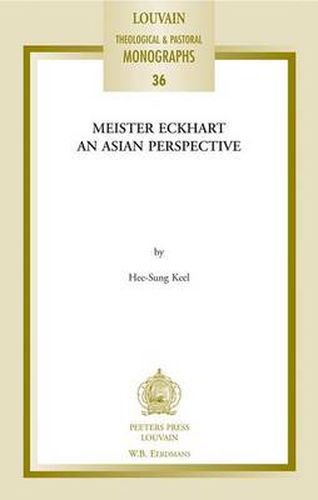Readings Newsletter
Become a Readings Member to make your shopping experience even easier.
Sign in or sign up for free!
You’re not far away from qualifying for FREE standard shipping within Australia
You’ve qualified for FREE standard shipping within Australia
The cart is loading…






Meister Eckhart (1260?-1328) is undoubtedly the most important thinker in the West for drawing the spiritual heritage of Christian mysticism close to the monistic spirit that infuses so much of Asian religious thought. His vision of the unio mystica of God and the soul as a perfect unity goes far beyond the conventional mysticism of love that was dominant before him. Eckhart’s mysticism of unity, a bold and revolutionary affirmation of a perfect divine-human unity realized in the ground of the soul, as well as the mystical atheism it gave rise to, inspired a wealth of profound spiritual insights that continue to challenge the reader of his sermons today. Without neglecting other aspects of Eckhart’s mystical thought that are not easily reconciled with this radical vision of divine-human unity, the author takes a careful look at the nature of the Dominican master’s mysticism, its philosophical background, and its implications for ethics and secular religiosity, drawing particular attention to its role in the East-West religious dialogue and the shaping of a vision of the spiritual unity of humankind.
$9.00 standard shipping within Australia
FREE standard shipping within Australia for orders over $100.00
Express & International shipping calculated at checkout
Meister Eckhart (1260?-1328) is undoubtedly the most important thinker in the West for drawing the spiritual heritage of Christian mysticism close to the monistic spirit that infuses so much of Asian religious thought. His vision of the unio mystica of God and the soul as a perfect unity goes far beyond the conventional mysticism of love that was dominant before him. Eckhart’s mysticism of unity, a bold and revolutionary affirmation of a perfect divine-human unity realized in the ground of the soul, as well as the mystical atheism it gave rise to, inspired a wealth of profound spiritual insights that continue to challenge the reader of his sermons today. Without neglecting other aspects of Eckhart’s mystical thought that are not easily reconciled with this radical vision of divine-human unity, the author takes a careful look at the nature of the Dominican master’s mysticism, its philosophical background, and its implications for ethics and secular religiosity, drawing particular attention to its role in the East-West religious dialogue and the shaping of a vision of the spiritual unity of humankind.